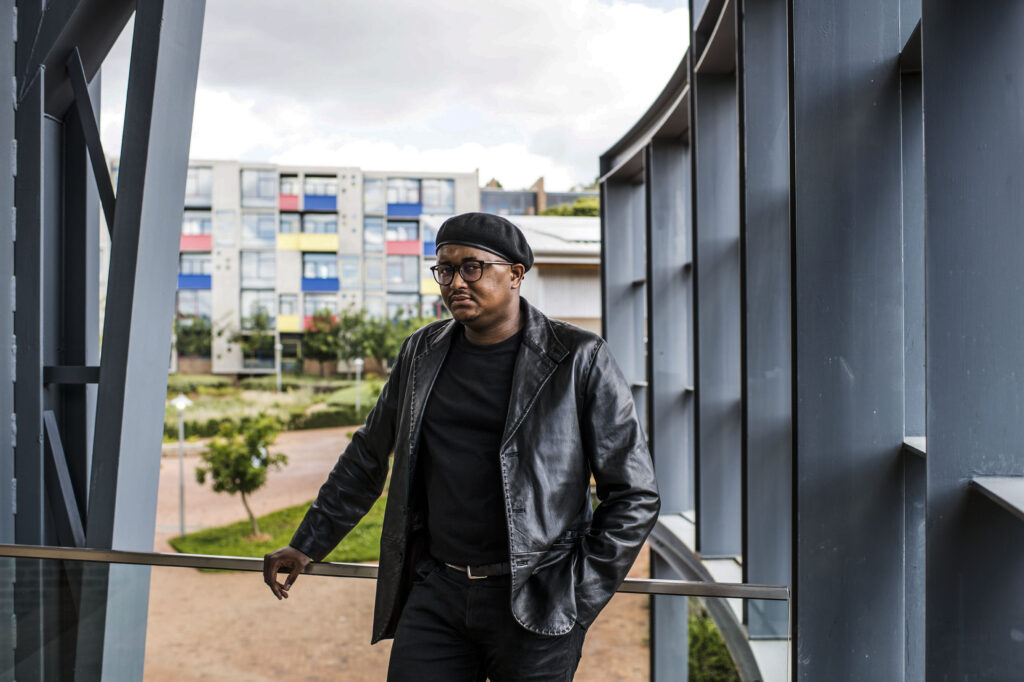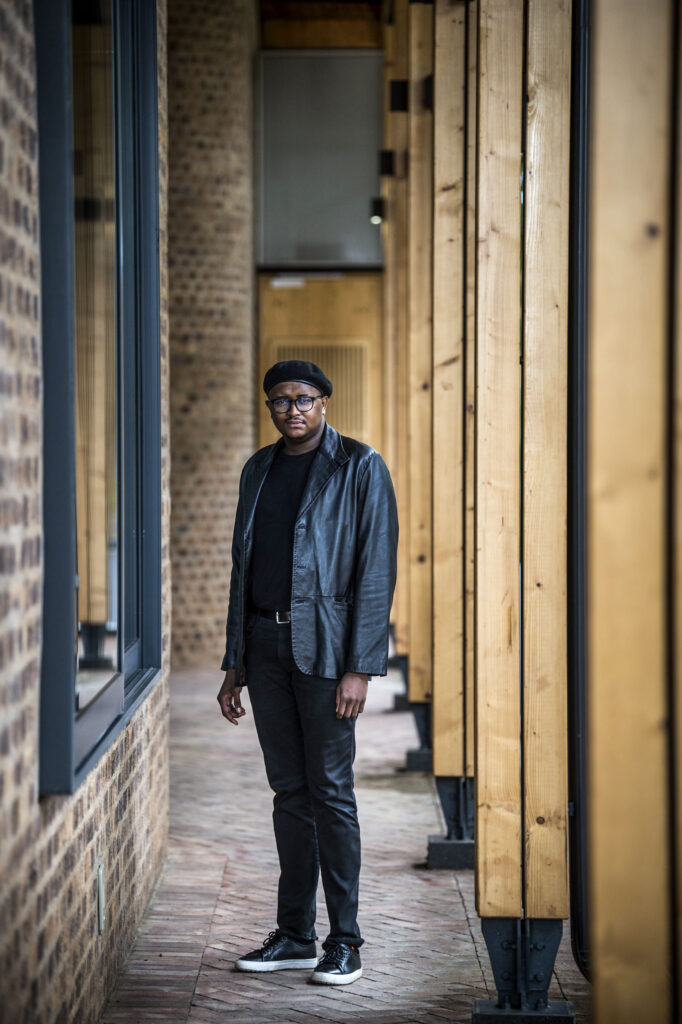Legal eagle: Dr Joel Modiri says we have failed to take seriously the Africanist and black radical tradition in how we understand the problem of justice. Photo Delwyn Verasamy
Since the beginning of this year, Dr Joel Modiri is the youngest professor at the University of Pretoria’s law faculty — at age 29. Modiri, who is also the acting head of the university’s department of jurisprudence, is a member of the South African Human Rights Commission’s committee on equality, and was featured in the Mail & Guardian’s 200 Young South Africans in 2018. He talks to Nicolene de Wee about racism and hate speech, youth empowerment, and his love of good wine and Afro-Cuban jazz
You’re the youngest person to hold the title of professor at the faculty of law at the University of Pretoria (UP). Who are your role models?
I was born in Pretoria, grew up in Atteridgeville and later moved to Centurion, where I attended Sutherland high school. My mother, who passed away at the end of 2006, was very much a crucial role model in my life, because she instilled the idea that it’s our responsibility to educate ourselves and become who we want to be. In 2010 when I started, there wasn’t a huge number of senior, black academics — maybe about three.

One of my mentors was my doctoral supervisor, Professor Karin van Marle, who taught me the seriousness of academic scholarship and the power of ideas. My second mentor was Professor Tshepo Madlingozi. They both played a pivotal role in shifting my interest from the legal profession to legal academia. But my real role models were people I’ve never met: scholars, philosophers, theorists and activists from different periods. If you walk into my office, you’ll find a portrait of Malcolm X, who modelled the idea of an uncompromising commitment to the question of black liberation.
Why did you decide to pursue a career in law?
At school, I studied history, economics and business. Law was just a general path that people with my profile (debating and public speaking) followed. From a young age, my general orientation has been that acts of injustice and unfairness should be openly challenged. Those in positions of authority and power should be accountable and subjected to more democratic structures limiting how they exercise power.
You have had an academic career at a very young age in an institution some people see as untransformed. What have the biggest challenges been thus far?
When I started, the department of jurisprudence at UP was on the radical left of the legal academy. It was like a safe haven in the otherwise untransformed environment of the university.
Of course, there were conflicts and challenges, and we had to take up institutional battles at different points in the past 10 years. Some of them were linked to the Fees Must Fall issue, and we were a department that supported the student protest in principle. I have not had a particularly “traumatic” encounter with UP’s historical whiteness. I guess that is one of the unique aspects of the department of jurisprudence: it continues to be a space in which perspectives and approaches that are not taken seriously in the rest of the faculty can actually be deepened.
My personal challenges were similar to those of any young academic, for example, the four years of writing a doctorate and producing a thesis.
Your PhD thesis, titled ‘The Jurisprudence of Steve Biko: A study in Race, Law and Power in the Afterlife of colonial-Apartheid’, has a strong focus on human rights, nation-building and reconciliation. What motivated this research?
My study’s overall aim has been to develop and outline black consciousness as a critical social theory of race. I did that by suggesting that we can understand black consciousness as a theory and philosophy of race only if we place Steve Biko’s thinking in the narrative of the Africanist tradition.
I was arguing that the thinking of the black consciousness tradition cannot be reconciled with the new political dispensation of South Africa. In fact, Biko presents a radical critique of post-1994 constitutional democracy, and the ANC-led project of nation-building and human rights ultimately functioned to sustain rather than undo historical structures of racial power and racial domination. In other words, race and racism remain fundamentally central to the country’s political and social landscape because the liberal non-racialism of the ANC, and of constitutional democracy failed, failed to undo the colonial and apartheid history of this country. Particularly in law and jurisprudence, we have failed to take seriously the Africanist and black radical tradition in how we understand the problem of justice.
What is your view on the government’s legal stance on racism and hate speech? Is slapping a fine or a jail term on convicted racists a solution to the problem?
South Africa, in part, cannot address racism because it is a racist polity. By this, I mean a society that’s ordered, governed and materially exist on the basis of the principle of white supremacy.

It’s not simply that we are still struggling with the legacy of the past: we are stuck in the material structure of white supremacy: economically, politically, culturally and socially. We live in a society in which black lives are still devalued and dehumanised under unresolved structures of white power in South Africa.
What makes this theoretically interesting is that we live in a white supremacist society under black rule. That’s the betrayal of the promise of liberation that my study was trying to resolve. So any attempt to criminalise racism or create new policies on racism and combating racism will fail unless and until South Africa confronts its foundational problem of white supremacy and colonialism.
What advice would you give to the youth of South Africa?
The country’s future, the world, and human existence on the planet depend on us becoming more thoughtful, literate, more engaged, and aware of our surroundings. To arrive at a richer sense of ourselves in the world, we have to take reading more seriously as a way of life.
So I can’t emphasise enough how important it is for young people to read and educate themselves.
What do you do to relax amid your busy academic schedule?
I have never said “no” to a good party, and I’ve never missed out on a lovely bottle of wine. I’m also an avid hiker and appreciate good music. Due to Covid-19, I haven’t travelled a lot, but I do make a point of seeing the world. I have dinners with my partner and friends all the time. I don’t want to create the impression that I’m a workaholic, because I work hard and play harder [laughs].
I like African-American blues artists like Aretha Franklin and Roberta Flack, and I’ve also been listening to the Afro-Cuban pianist Omar Sosa. I lead quite a rich and active physical and social life, which is crucial for young academics. I’ve been lucky to do what I love, which is researching black intellectuals, so I don’t consider that work.
[/membership]